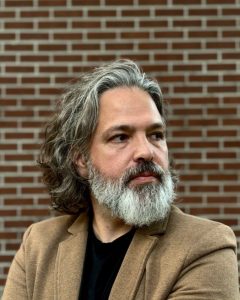JM103: A Machine for Making Gods
Destiny and Mystery in the Philosophy of Henri Bergson
This course concluded in October 2025 and is now self-paced.
“Humanity groans, half-crushed under the weight of its own progress. We do not fully realize that our future depends on us. We must first decide whether we wish to go on living, and then whether we wish to live only, or to make, in addition, the necessary effort to fulfill — even on this refractory planet — the essential function of the universe, which is a machine for making gods.”
With these lines — the closing words of his last book — Henri Bergson completed a single line of thought he had cultivated for forty-five years. It was 1932, a year before Leo Szilard’s sudden vision of the nuclear chain reaction, and many more years before humanity would confront the full scope of its destructive power. Yet in this short passage Bergson shows himself acutely aware of both the perils confronting us and the immense promise we hold as a species. He turns to us with the essential question: What will we choose? How shall we live … and for what?
Nietzsche wrote of those “born posthumously.” If Bergson is finally receiving his due today, his influence is still mostly felt within the walls of academia. But Bergson did not write for professors. Subtle as his ideas can be, he wrote them in plain language, so that anyone could understand. He believed that thought must serve life, and that life begins in free action, change, invention. Of all the thinkers of the twentieth century, he is one of the very few to give us a philosophy of creation, one that dares to hope without falling prey to innocence—a philosophy that says yes. In these apocalyptic times, is such a philosophy laughably naïve, or more urgent than ever? This is one of the questions spurring this five-week course of lectures and discussions.
But A MACHINE FOR MAKING GODS is more than an introduction to the philosophy of Henri Bergson. It is an invitation to think with one of the truly original minds of the last century about the nature of time, life, memory, reality, and dream. More than perhaps any other philosophy, Bergson’s offers a sharp tool for cutting through the confusion, shallow “takes,” and outright illusions that bombard us today.
Format
The course consists of five weekly lectures, each 90 minutes long, and as many “office hours” sessions, where students can ask J.F. questions and contribute their own ideas to the evolving discussion. The course includes a dedicated feed where the instructor and students can post thoughts, share links, and engage in discussion between Zoom sessions.
Schedule
This course concluded in October 2025 and is now self-paced.
Homework
From week to week, J.F. may assign readings in view of upcoming discussions. All readings are optional, aiming to enrich the experience. Whenever possible, texts will be made available on the course platform. For copyright reasons, students may need to purchase access to certain works, such as films, on their own.
Why Take This Course?
Students will:
- Acquire a strong understanding of Henri Bergson’s philosophy, the ideas and models he challenged, and his continuing relevance in the 21st century.
- Engage directly with J.F. in weekly discussions, exchanging questions and ideas with both the instructor and fellow students over Zoom.
- Gain access to recordings of all lectures and discussions in both video and audio format.
- Participate in an ongoing conversation by posting, sharing, and exchanging direct messages with the instructor and other students on the Weirdosphere platform.
Join an online learning community inspired by Weird Studies, gaining discounts on all future Weirdosphere courses and access to past offerings.
Instructor Bio

J.F. Martel is a Canadian author, filmmaker, lecturer, and cultural critic known for his work on the arts, philosophy, and the uncanny. With a background in film production and an interest in metaphysics, Martel explores the intersections of creativity and the ineffable, challenging conventional boundaries of understanding. He is best known for his book Reclaiming Art in the Age of Artifice, which argues for the intrinsic value of art beyond commodification and utilitarianism. Martel’s writings often appear in various publications, where he discusses the spiritual and existential dimensions of culture. As a filmmaker, he has directed several documentaries and short films. Through his work, Martel invites audiences to reconsider their perceptions of reality and embrace the mysteries that lie beneath the surface of the workaday world. He co-hosts the Weird Studies podcast with the music historian Phil Ford.